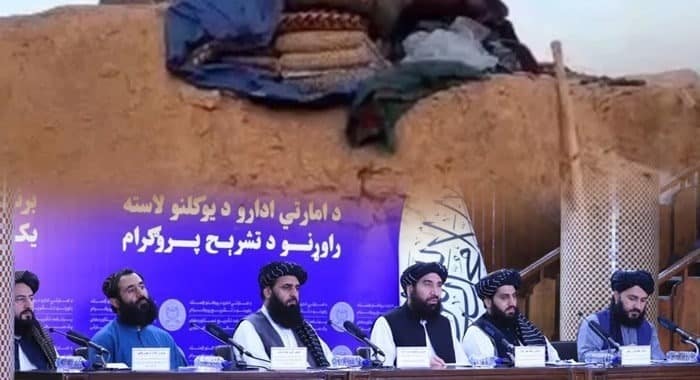The Taliban claim to have seized over 1,400 acres of land in Logar province, declaring it state property. In a statement, the Ministry of Justice announced that the land, located in Pul-e-Alam, the provincial capital, was officially reclassified as “Emarati” land during a session of the Taliban’s Committee for Preventing Land Usurpation. The case involving 1,406 acres has now been forwarded to the central commission for a final decision.
The Taliban have set up the Commission for Preventing Land Usurpation and Restoring Seized Lands with the aim of reclaiming land they consider as state property from alleged land usurpers. According to Taliban officials, large swathes of land across Kabul and other provinces have already been reclassified as government-owned. However, no independent body exists in Afghanistan to handle complaints from citizens who accuse the Taliban of seizing private property under the guise of land reclamation.
Previously, the Taliban’s land policies have stirred considerable controversy, especially with their actions in Ghor province. Following public outrage over the arbitrary arrests and harassment of women in Kabul, another disturbing issue emerged from Ghor, where Taliban forces reportedly expelled more than 100 families from their homes in Dawlatyar district as part of a violent, unilateral land grab.
Local sources reported that the eviction took place in the Keshro valley, affecting six villages: Sang-e Shura, Darwaza, Dahane Ghori, Jireh Gak, Narmtab, and Hajiabad. The majority of the displaced families belong to the Taymani tribe, who are engaged in a long-standing land dispute with the Khanzada (Sardar Khel) tribe. What alarmed observers, however, was the Taliban’s direct intervention in this matter, which should have been settled through legal or tribal mediation, rather than through the use of force.
The eviction was reportedly ordered by Ahmad Shah Din Dost, the former Taliban governor of Ghor and current commander of the 205 Al-Badr Corps. Local sources allege that Din Dost, who has longstanding ties with the Sardar Khel tribe, may have been acting out of personal bias, further complicating the situation. The eviction sparked a protest as the affected families resisted what they called an unjust and politically motivated operation.
Meanwhile, concerns continue to rise about the Taliban’s growing control over land and resources, with alarming reports of forced displacements and widespread evictions. In a disturbing trend, the Taliban has been handing over large swathes of land to companies with Taliban ties under opaque “development” schemes. In Kabul, the Taliban’s Directorate of Emirati Companies announced the allocation of over one million acres of land to enterprises linked to the regime. This land, the Taliban claims, will be used for “agricultural and commercial development,” but the details of its origins and ownership remain unclear.
Critics argue that the Taliban’s land policies amount to a calculated, systematic land grab under the guise of state-building. With no independent judiciary or land dispute resolution system in place, Afghan citizens find themselves with limited recourse against these measures. The Taliban’s Commission for the Prevention and Recovery of Usurped Land reports having reclaimed 3.9 million acres since its inception, registering over 12.7 million acres under its centralised ownership structure. Critics contend that these actions strip citizens of their ancestral lands and autonomy.
In a broader context, the National Resistance Council for the Salvation of Afghanistan has raised alarm about the Taliban’s efforts to forcibly displace indigenous communities across central Afghanistan, particularly in Maidan Wardak, Bamiyan, and Ghor provinces. The Council claims that these displacements, often carried out in coordination with nomadic Kuchi groups, are part of a larger plan to engineer demographic change in these strategic regions.
The Resistance Council has condemned these expulsions as human rights violations, describing them as a violation of both national values and Islamic teachings. It warns that these actions amount to structural discrimination and, in some cases, ethnic cleansing. The Council has called on the international community to investigate these forced displacements, document human rights abuses, and hold the Taliban accountable for its actions.
These forced evictions and land grabs continue to fuel public anger and raise serious concerns about the Taliban’s long-term plans for Afghanistan’s social and political fabric. Without an independent judiciary and with the Taliban consolidating power over the country’s land resources, the prospects for justice remain bleak for many Afghans.





